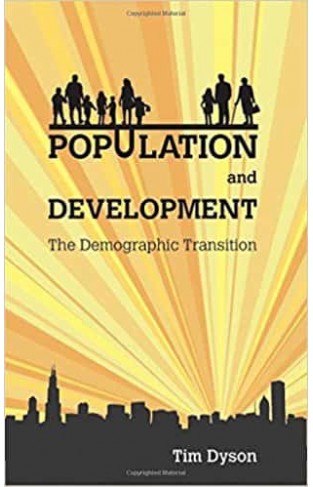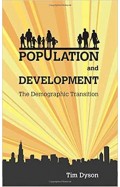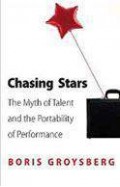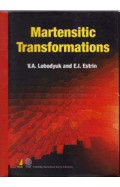- Home
- Books
- Categories
- Non Fiction
- Business & Management
- Finance, Investment & Stocks
- Population and Development: The Demographic Transition
Population and Development: The Demographic Transition
By: Tim Dyson
-
Rs 1,302.75
- Rs 2,895.00
- 55%
You save Rs 1,592.25.
Due to constant currency fluctuation, prices are subject to change with or without notice.
| Book | |
| What's in the Box? | 1 x Population and Development: The Demographic Transition |
Population and Development: The Demographic Transition
By: Tim Dyson
Rs 1,302.75 Rs 2,895.00 Ex Tax :Rs 1,302.75
Zubin Mehta: A Musical Journey (An Authorized Biography)
By: VOID - Bakhtiar K. Dadabhoy
Rs 472.50 Rs 1,050.00 Ex Tax :Rs 472.50
Natural Healing With Aromatherapy Flash
By: Denise Whichello
Rs 807.75 Rs 1,795.00 Ex Tax :Rs 807.75
How to Build a Human: What Science Knows About Childhood
By: Emma Byrne
Rs 2,096.25 Rs 2,795.00 Ex Tax :Rs 2,096.25
Chasing Stars: The Myth of Talent and the Portability of Performance
By: Boris Groysberg
Rs 5,456.75 Rs 8,395.00 Ex Tax :Rs 5,456.75
Tactics: 10 Success Strategies for Young Professionals
By: Jan Zuchowski
Rs 906.75 Rs 1,395.00 Ex Tax :Rs 906.75
The Art of Asking: How I learned to stop worrying and let people help
By: Amanda Palmer
Rs 697.50 Rs 1,550.00 Ex Tax :Rs 697.50
Martensitic Transformations
By: V A Lobodyuk, E I Estrin
Rs 1,788.75 Rs 3,975.00 Ex Tax :Rs 1,788.75
American Dreams : Restarting the Economy and Restoring the Land of Opportunity
By: Marco Rubio
Rs 1,077.75 Rs 2,395.00 Ex Tax :Rs 1,077.75
Picture Your Prosperity: Smart Money Moves to Turn Your Vision Into Reality
By: Ellen Rogin
Rs 547.25 Rs 995.00 Ex Tax :Rs 547.25
Population and Development: The Demographic Transition
By: Tim Dyson
Rs 1,302.75 Rs 2,895.00 Ex Tax :Rs 1,302.75
Natural Healing With Aromatherapy Flash
By: Denise Whichello
Rs 807.75 Rs 1,795.00 Ex Tax :Rs 807.75
How to Build a Human: What Science Knows About Childhood
By: Emma Byrne
Rs 2,096.25 Rs 2,795.00 Ex Tax :Rs 2,096.25
No recently viewed books available at the moment.
Zubin Mehta: A Musical Journey (An Authorized Biography)
By: VOID - Bakhtiar K. Dadabhoy
Rs 472.50 Rs 1,050.00 Ex Tax :Rs 472.50
Population and Development: The Demographic Transition
By: Tim Dyson
Rs 1,302.75 Rs 2,895.00 Ex Tax :Rs 1,302.75
Natural Healing With Aromatherapy Flash
By: Denise Whichello
Rs 807.75 Rs 1,795.00 Ex Tax :Rs 807.75
How to Build a Human: What Science Knows About Childhood
By: Emma Byrne
Rs 2,096.25 Rs 2,795.00 Ex Tax :Rs 2,096.25














-120x187.jpg?q6)














